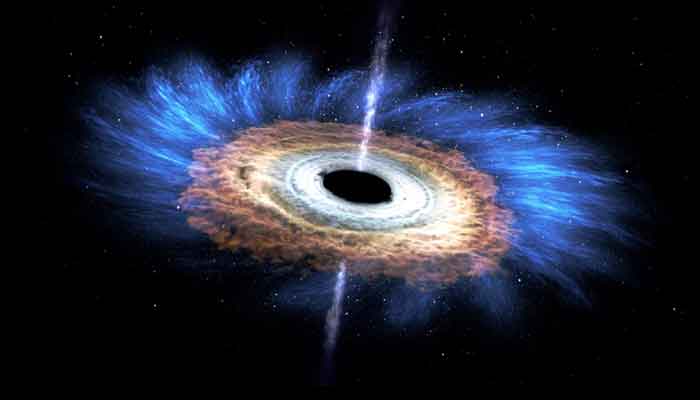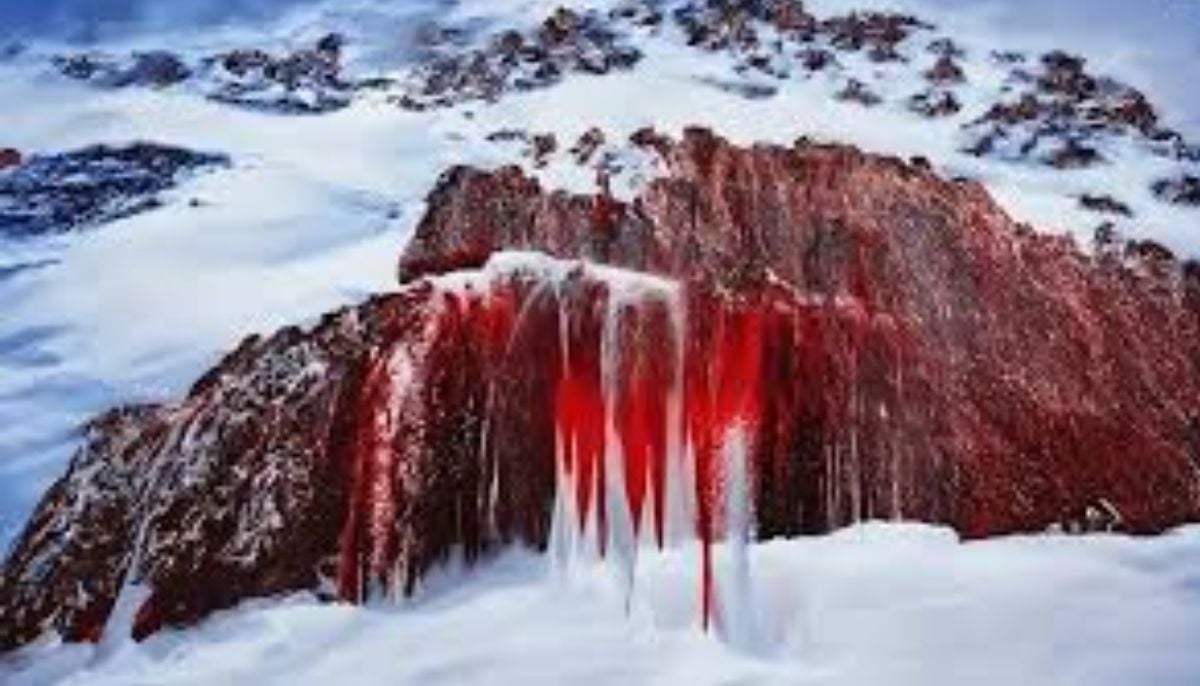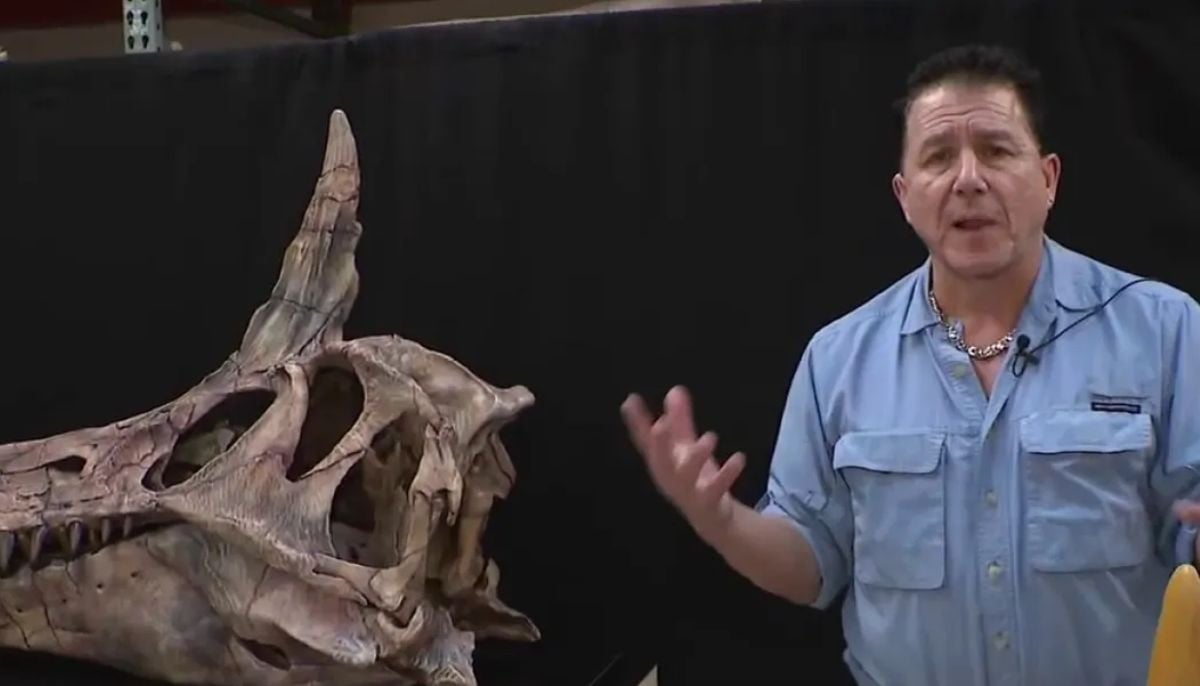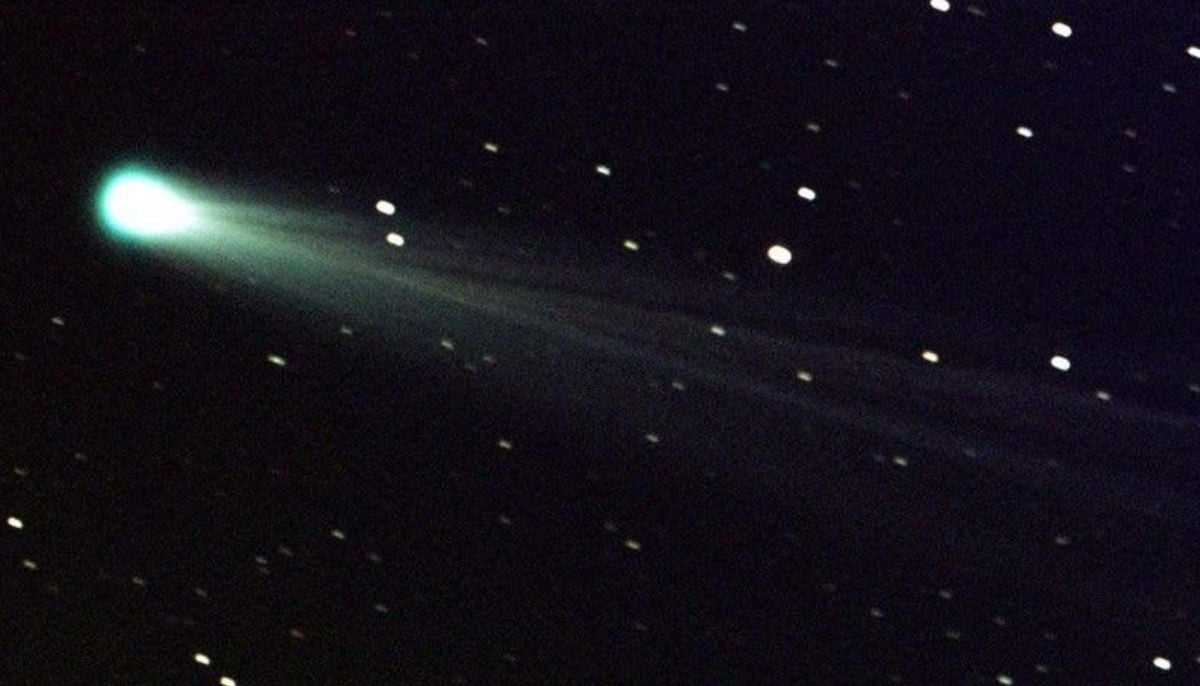Did dark matter form giant black holes?
Some models of dark matter predict that it's extremely light, even billions of times lighter than neutrino
A new paper proposed by the researchers has said that dark matter may have contributed to the formation of giant black holes in the early universe.
Gigantic black holes that also appeared in the relatively young universe, are being revealed by more observations, especially with the James Webb Space Telescope, reported Space.com.
It would appear just a few hundred million years after the Big Bang that our cosmos was already home to black holes billions of times more massive than the sun.
Moreover, the only known way to create black holes is through the deaths of massive stars, but that process yields black holes with a few dozen solar masses.
There was just not enough time for the first stars to form, die, and then for those little black holes to eat enough matter to become supermassive, which is the reason why the huge black holes appeared so early.
Therefore, it's possible that the early cosmos had a different method for creating massive black holes, which would have started the process. The simplest method to accomplish that is to have massive clouds of helium and hydrogen collapse on themselves, bypassing star formation entirely and proceeding directly to the development of black holes.
However, molecular hydrogen, which is highly effective at cooling the gas, is often formed when gas clouds collapse. This prevents the cloud from collapsing directly into a black hole by causing it to break up into numerous smaller pieces, creating a cluster of young stars. High-energy ultraviolet (UV) light, which was scarce in the early universe due to the lack of stars, can be used to blast molecular hydrogen to prevent its creation.
Additionally, dark matter is an unconventional answer put out by Hao Jiao of McGill University in Quebec and associates in a new work published in March and posted to the preprint database arXiv.
It has been predicted by some models of dark matter that it's extremely light, even billions of times lighter than the neutrino, the lightest known particle. If dark matter is superlight, then at galactic scales, it acts more like a quantum ocean than a beehive of discrete particles.
-
Climate change vs Nature: Is world near a potential ecological tipping point?
-
125-million-year-old dinosaur with never-before-seen spikes stuns scientists in China
-
Scientists stunned as shark appears for first time in Antarctic Southern Ocean waters
-
New study suggests universe can end in ‘Big Crunch’ in 20bn years
-
Hidden Venus: New data discovers massive underground Lava Tube
-
‘Earth is defenseless against city-killer asteroids’: NASA issues stark warning
-
Annular solar eclipse 2026: Where and when to see the ‘Ring of fire’
-
Bright green comet C/2024 E1 nears closest approach before leaving solar system












